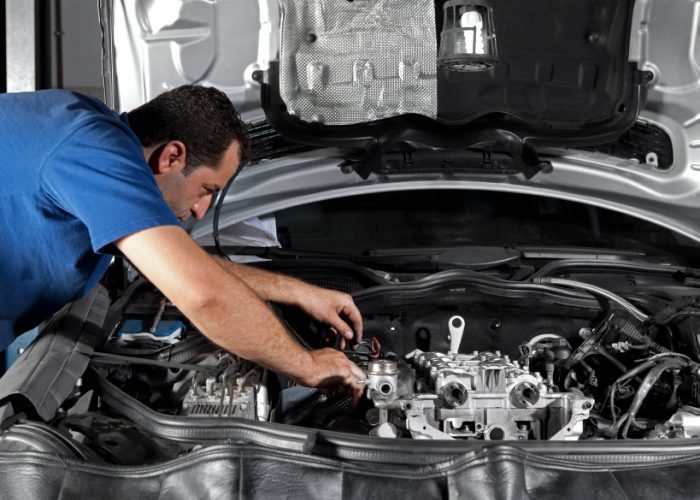
Trying to find the right solution for your auto repair needs can seem like trying to find a needle in a haystack. What are you going to do when you can’t determine the cause? Who are you going to hire? Can you buy the parts yourself? You’re now swimming in confusion. Keep reading to eliminate the stress and simplify your solutions.
When you run into car problems, you should first turn to the Internet to learn what the problem could be. You may find that it is an easy to repair problem that you can do on your own. This could save you hundreds of dollars in labor fees if you had to take it to a shop.
Be very careful when touching the electronic parts on your car. You should not touch wires unless the entire system is turned off. You should pay attention to the warning labels on the different parts of your car; touching some parts can be dangerous even when your car is turned off.
Pay attention to the gauges and trouble lights on your cars dash. Learn to recognize the warning signs of a car that is overheating, low on oil or not charging the battery. Knowing which of these indicators need immediate attention can prevent damage to your car and save you cash in the long run.
Make sure that you have car records on file. It’s a good idea to place them in the vehicle you drive just in case you’re in need of repairs while you’re out and about. The auto shop will definitely want to see any records. Good documentation can help diagnose problems a lot faster.
In addition to basic tire changing equipment, keep a plastic tote filled with DIY auto repair supplies in the trunk of your car in case of emergencies. Fill it with at least a quart each of motor oil, transmission fluid, steering fluid, and brake fluid and a gallon of water. Add a can of penetrating oil spray, a roll of duct tape, twine, bungee cords and basic tools so that you can manage minor repairs on the road.
Garage
If you feel pressured by the garage or dealership you visit to get your car maintained or repaired, do not hesitate to leave. Reliable mechanics will not put any pressure on their customers and will focus on providing quality service. Follow your gut feeling and stay away from the mechanics who do not seem trustworthy.
Try looking for someone who fixes cars on their own property. It’s about the experience, not the location, and someone that uses their own locale may be a lot cheaper than a shop. This could easily save you hundreds of dollars and help someone out by giving your business to them instead of a big shop.
You should not choose a repair shop or a mechanic right away if you are rushed. If your car needs some repairs right away, find a friend or family member who can lend you their vehicle or give you rides until you find a reliable garage or dealership to repair your vehicle.
If you need to get your vehicle fixed, choose a garage or a dealership that hires certified technicians. The person who runs the place might have a certification but this does not mean that certified people will work on your car. Choosing certified technicians is a good way of making sure qualified people are fixing your car.
If you have to drop your car off at a garage or dealership, instruct the mechanics that you wish to be called with an estimate before they do any work on your car. Do not let a mechanic convince you to pay for expensive repairs because the vehicle is already partly dismantled.
When looking for a repair shop or a garage, pay attention to the documents on the walls. Certified mechanics usually have the original copy of their certification framed on the wall. You should look for certifications issued by your state or by the ASE as well as proofs of insurance.
Now you are equipped to make the decisions correctly when you are faced with car repairs. While there still will be an expense, you now can feel confident that the ball is in your hands. No more worrying about your next move; instead, you are going to take charge when it comes to auto repairs.
